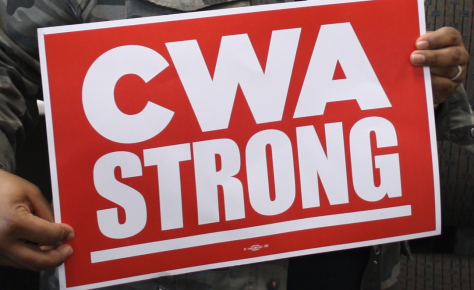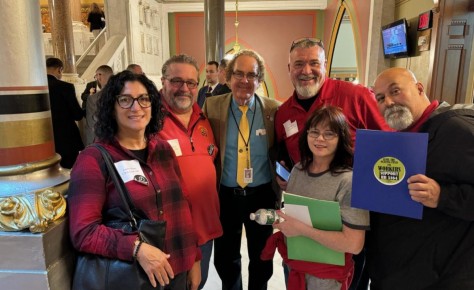A Message from President Dave Weidlich
Once upon a time, in the vast tapestry of American history, there was a chapter that held within it the promise of freedom and the indomitable spirit of a people. This chapter, inscribed with the ink of struggle, liberation, and resilience, is known as Juneteenth—the day that freedom echoed across the nation. We invite you to journey with us through time to discover the profound significance of this historic event and the unyielding bond between Juneteenth, the labor movement, and the pursuit of human rights.
Long ago, on a hot summer's day in Galveston, Texas, the year was 1865—a full two years after President Abraham Lincoln's Emancipation Proclamation had been signed. It was on this day, the 19th of June, that General Gordon Granger arrived with an announcement that forever altered the course of history. A jubilant and resounding proclamation of emancipation rang out, reaching the ears of those who had endured the shackles of slavery for far too long. It was a day of profound celebration, marking the true end of chattel slavery in the United States.
Juneteenth became a symbol of hope and resilience—a testament to the unyielding spirit of African Americans who persevered against unimaginable odds. It stands as a testament to the power of collective struggle and the belief that every person deserves the right to life, liberty, and the pursuit of happiness. While Juneteenth was initially celebrated in Texas, it soon spread its wings, becoming a beacon of freedom that resonated with African Americans across the nation.
However, the struggle for equality did not end with Juneteenth. The echoes of the past resonated deeply within the labor movement and the fight for workers' rights. The foundations of the labor movement were laid on the principle that every worker, regardless of their race or background, deserved fair treatment, just wages, and safe working conditions. The labor movement recognized that true justice could only be achieved when the rights of all workers were respected.
As unionists and advocates for human rights, we must remember that the fight for equality extends beyond the workplace. It is an unyielding commitment to dismantling systems of oppression that perpetuate inequality in all its forms. The recognition of Juneteenth as a federal holiday is a step forward—a tangible acknowledgement of the importance of this historic event and the ongoing struggle for justice and equality.
By prioritizing human rights, the labor movement becomes a formidable force for change. It echoes the spirit of Juneteenth, reminding us that freedom and justice are not abstract concepts but rather the foundations upon which our society must be built. In honoring Juneteenth, we honor the sacrifices and resilience of those who came before us and fortify our resolve to fight for a better future.


